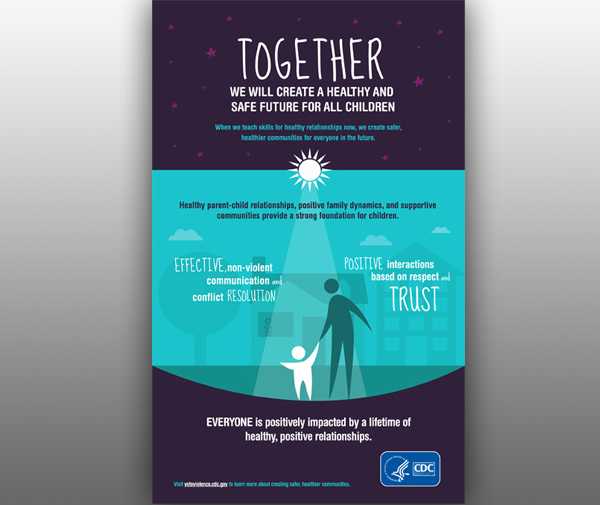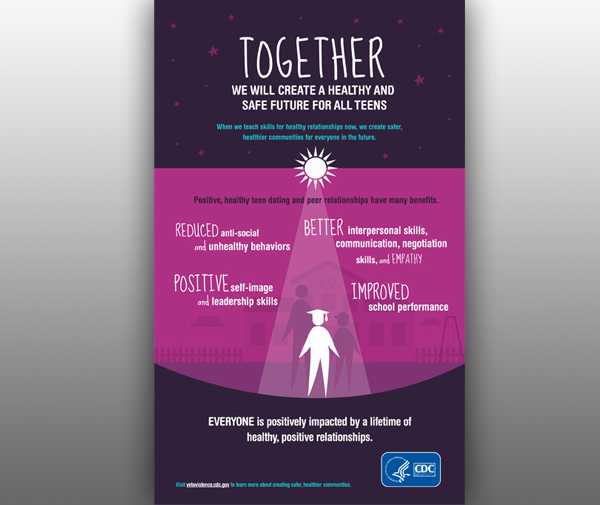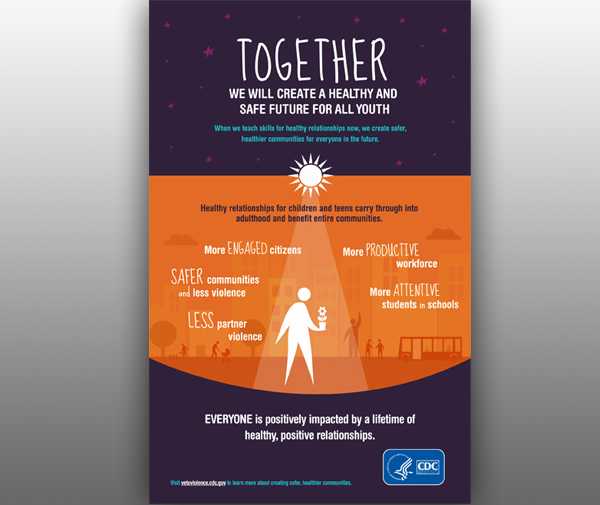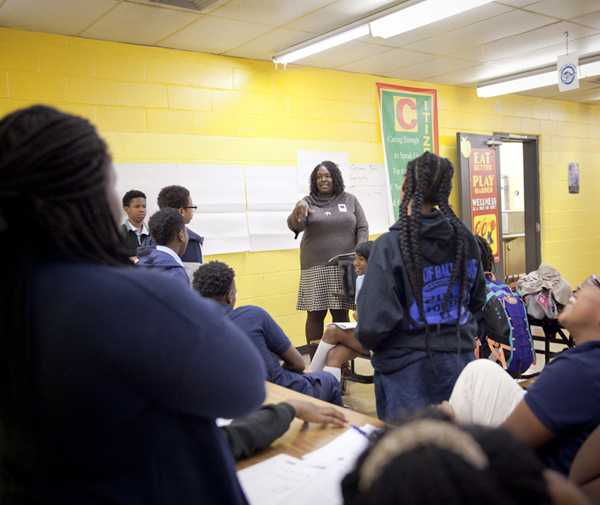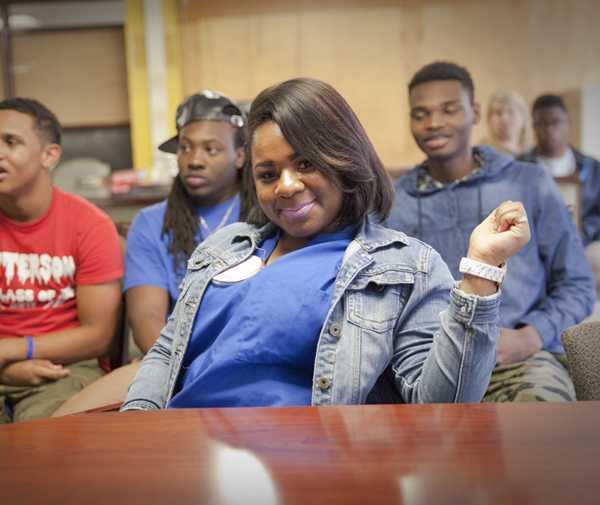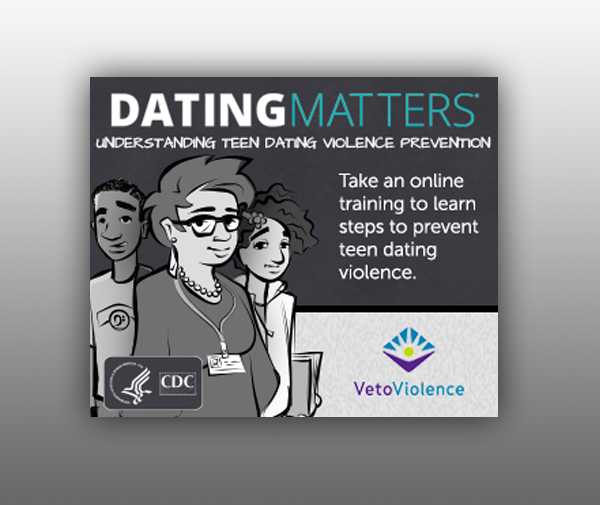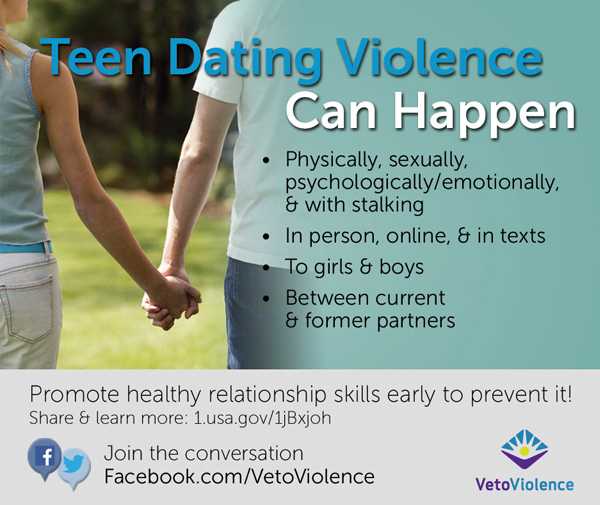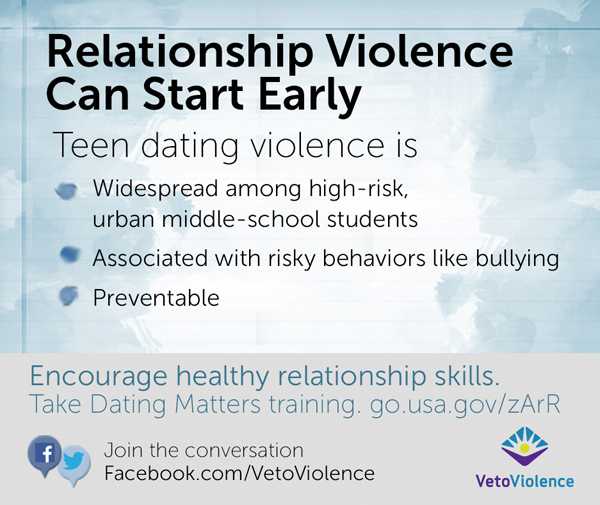Teen Dating Violence Awareness & Prevention Month
Dating violence can happen to teens in a romantic or sexual relationship anytime, anywhere. But it doesn’t have to happen at all. A healthy relationship is built on respect and is free of violence.
Teen dating violence is the physical, sexual, psychological, or emotional violence in a dating relationship, including stalking. It happens in person and electronically with current or former partners.
This problem is widespread with serious effects. However, many teens don’t report it because they’re afraid to tell friends and family.
- Of students who reported dating, 21% of girls and 10% of boys reported experiencing physical violence and/or sexual violence from a dating partner in the past 12 months.
- 23% of females and 14% of males who ever experienced rape, physical violence, or stalking by an intimate partner first experienced some form of partner violence between ages 11 and 17.
CDC’s initiative Dating Matters®: Strategies to Promote Healthy Teen Relationships promotes respectful, nonviolent relationships among youth in high-risk, urban communities. Dating Matters supports prevention strategies in schools and neighborhoods and with families, using comprehensive, evidence-based and evidence-informed practices to reduce the burden of teen dating violence.
Communicating, managing uncomfortable emotions like anger and jealousy, and treating others with respect keep relationships healthy and nonviolent. Dating violence is preventable when teens, families, organizations, and communities come together and implement effective prevention efforts. Learn how.
Contact Information
CDC Media Relations
(404) 639-3286
media@cdc.gov
Spokespersons
Phyllis Holditch Niolon, PhD
“It isn’t enough to tell young people not to engage in violent behaviors. We have to teach young people what healthy relationship behaviors are and give them the skills to use them if we want to help them engage in respectful, safe relationships.
As parents, educators, and community members, it’s up to us to model respectful relationships and to give adolescents the skills and guidance needed to build respectful, violence-free relationships throughout their lives.”
Phyllis Holditch Niolon, PhD – Acting Special Assistant to the Associate Director of Science in the Division of Violence Prevention
Related Links
- Teen Dating Violence Prevention Fact Sheet
- Teen Dating Violence Prevention Infographic
- Youth Risk Behavior Surveillance — United States, 2013
- Teen Dating Violence (Physical and Sexual) Among U.S. High School Students: Findings From the 2013 National Youth Risk Behavior Survey
- Prevalence of Teen Dating Violence and Co-occurring Risk Factors Among Middle School Youth in High-Risk Urban Communities
- Dating Matters Training®: Understanding Teen Dating Violence Prevention
- Dating Matters® Capacity Assessment and Planning Tool
Video
- Dating Matters®: Communities for Healthy Teen Dating
- Dating Matters®: Baltimore
- Dating Matters®: Chicago
- Dating Matters®: Ft. Lauderdale
- Dating Matters®: Oakland
- Page last reviewed: February 8, 2016
- Page last updated: February 8, 2016
- Content source:



 ShareCompartir
ShareCompartir
